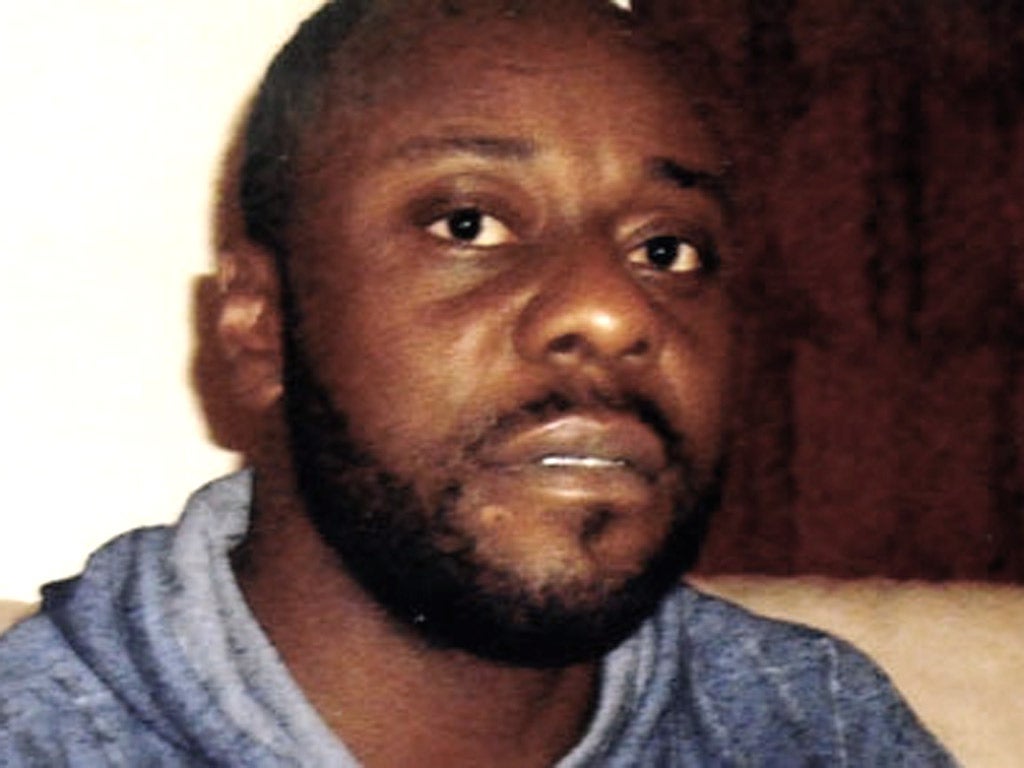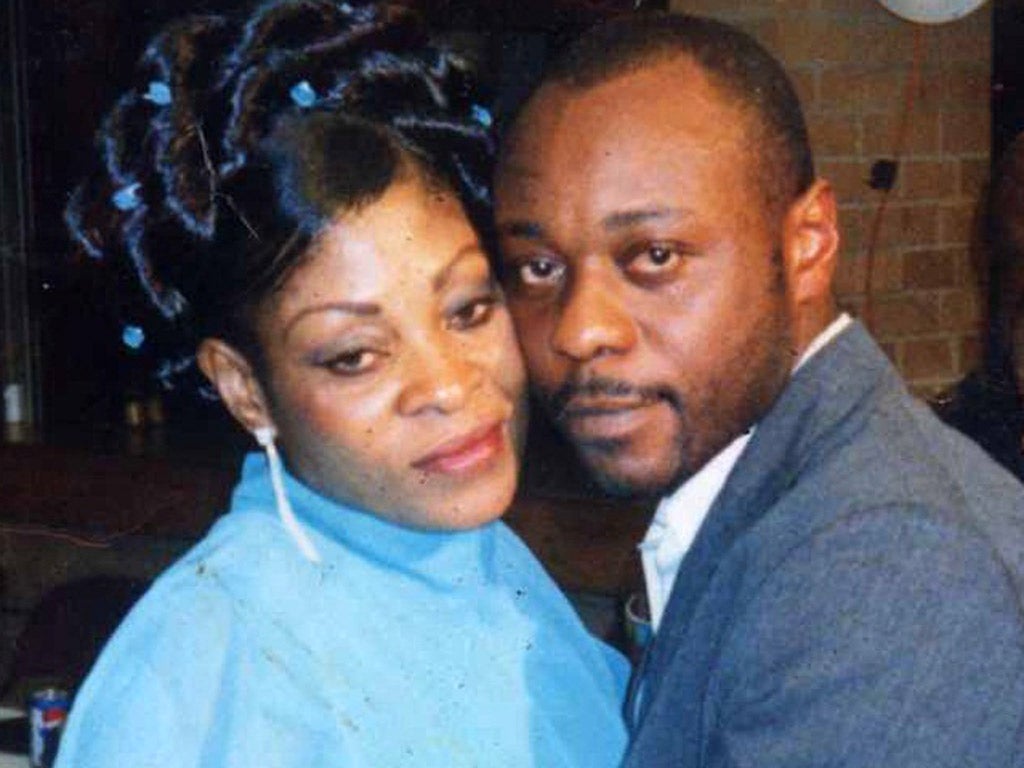Jimmy Mubenga death: G4S guards ‘ignored deportee’s cries’ before he died on airliner

Passengers on a plane from Heathrow heard an immigrant deportee screaming “I cant' breathe” as he was pinned to his seat by security guards before collapsing and dying, a court has heard.
Jimmy Mubenga, 46, was already handcuffed and had his seatbelt on, but the three G4S guards bent him forward, impairing his ability to breathe, the Old Bailey jury was told.
By the time the cabin crew on the British Airways flight raised the alarm it was too late, and the married father had collapsed and gone into cardiac arrest. The whole incident on 12 October 2010 took only 35 minutes.
Mr Mubenga was an Angolan national who had been living in the UK for a number of years with his wife and children, the youngest of whom was a few months old.
Although he was tearful before his departure, he had acknowledged that he had to go back and was “resigned” to the situation, jurors were told.
Prosecutor Mark Dennis QC said that before boarding the jet Mr Mubenga had been “fit and healthy” and “thoroughly co-operative”.
But as the security guards waited for the plane to take off, he became upset after taking a call on his mobile while in the toilet.
Fearing he was going to try to escape, the guards restrained Mr Mubenga as he shouted: “Please let me go, I want to see my family.”

Mr Dennis said there was no criticism of the guards, Terrence Hughes, 53, from Portsmouth, Colin Kaler, 52, from Kempston, Bedfordshire, and Stuart Tribelnig, 39, from Horley, Surrey, until Mr Mubenga was strapped into his seat.
“He was restrained by the application of rigid handcuffs with his arms bound behind his back and his seat belt holding him into the seat.
“Such restraint should have been enough to hold Mubenga in the seat. The officers could have simply stepped back and tried to calm the situation by words,” said Mr Dennis.
“However, they did not take that course and instead sat one either side of Mubenga, with one leaning over from the seat ahead.
“In doing so, they held Mubenga bent forward so that his ability to breathe properly was inevitably impaired.
In an unprecedented move, a section of the Boeing 777 with three rows of three seats has been specially constructed inside Court 16 of the Old Bailey to demonstrate to the jury how Mr Mubenga died.
“Each officer would have known from training and common sense that keeping someone in such a position was likely to cause harm, yet they did so over a prolonged period, ignoring shouts from Mubenga that he was in trouble,” said Mr Dennis. “Shouts of ‘I can’t breathe’ were heard by many a passenger.”
After Mr Mubenga collapsed, Mr Dennis said, the security guards still failed to react. “Even then, when Mubenga was seated motionless and staring open-eyed ahead of him, the officers would appear to have preferred to assume that Mubenga was simply feigning his condition.
“It was only when it finally dawned on one of the officers that Mubenga was in a critical state that the alarm was raised and the ‘medical emergency’ reported to the control tower.
“By then Mubenga had almost certainly already suffered a cardiac arrest and was, in all likelihood, beyond recovery.”
Mr Dennis said the guards’ main motivation might have been to ensure the plane took off, thinking that Mr Mubenga would calm down once he was airborne.
The defendants all deny manslaughter. The trial continues.